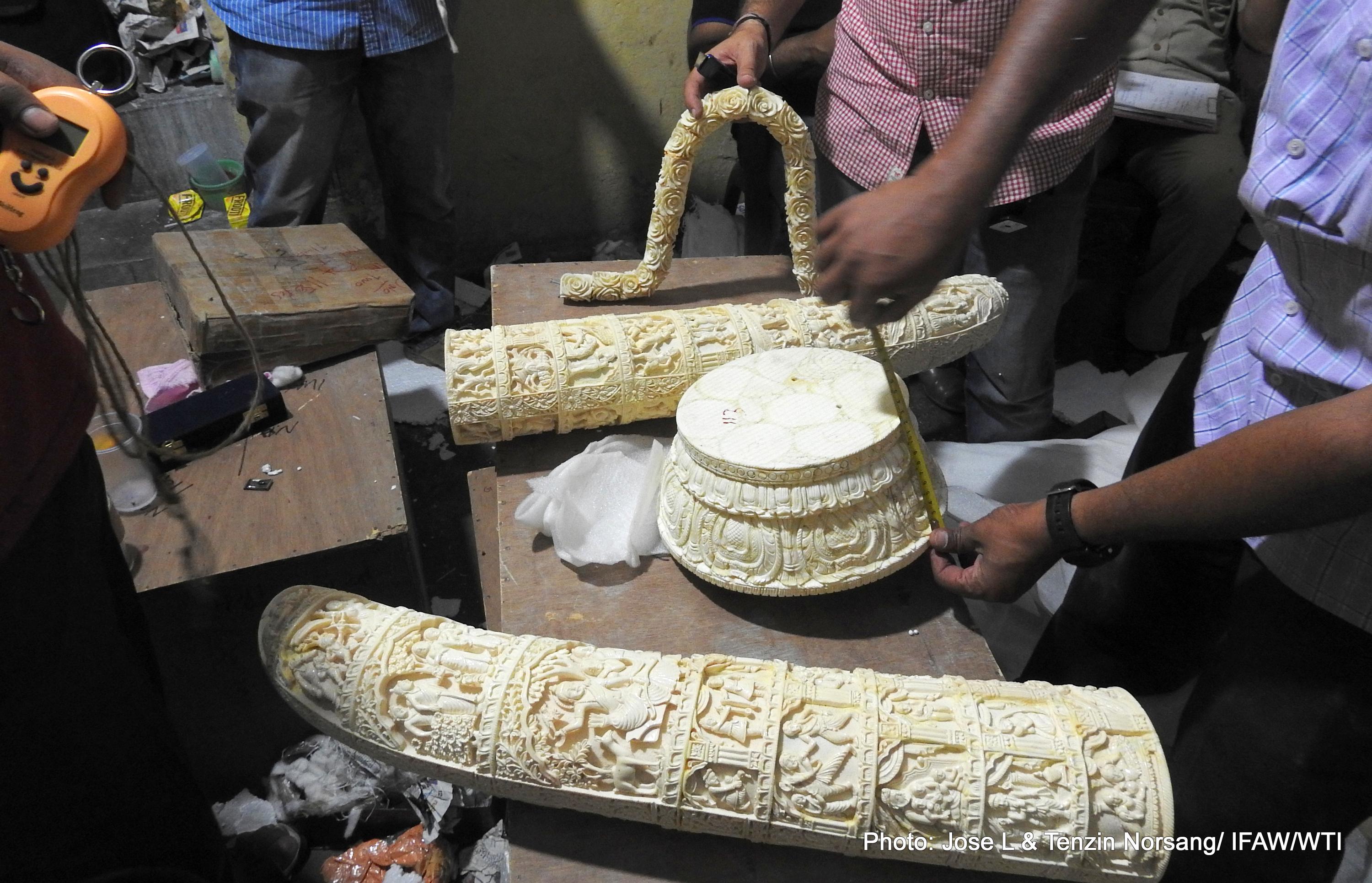New Delhi seems to have turned into a safe den of international smugglers where forest. Of late, it has become a route of racketeers where wild animal parts are smuggled. A joint team of Kerala forest department, Wildlife Crime Control Bureau and Delhi Police seized 487 kg of ivory during an operation in the national capital on Monday.
The covert operation was conducted is the result of the Operation Shikar where a person was arrested on October 2. Identified as Umesh Aggrawal, he was believed to have made the huge revelation during interrogation who is suspected to be the kingpin of the illegal ivory trade. This came to light from the detailed analysis of call records of middlemen and poachers from Kerala, where wild elephants were poached. The suspect was taken to Kerala where several cases are registered against him.
‘Operation Shikar’ was initiated soon after the discovery of organized elephant poaching in Kerala in the month of June after which two persons, Ajir Brite and Preston were arrested. The investigation team used human and digital intelligence to track the movement of suspects and build the linkages and actionable intelligence was handed over to the strike teams who conducted covert operation through which the two suspects Brite and Preston were nabbed. They used to supply ivory to Aggrawal.
The trader, Aggrawal is a well to do businessman dealing in art and collectibles was operating his business from a three storied house in a posh locality of Delhi. A fully equipped carving unit was operational at the basement of his house where the authorities suspect the artisans turned ivory into high valued ivory articles to be exported.
The suspect confessed his involvement in the illegal trade of ivory from the 90s. He used his company ‘Art of India’ which dealt in various artefacts from India to other countries and mixed ivory and ivory articles along with sandstone and resin statues to avoid detection. He also openly manufactured and displayed articles which looked and felt like ivory in various art exhibitions to attract customers for genuine ivory products.
During the course of investigations, he confessed about hiding ivory and ivory articles in a rented room in East Delhi. He also gave a sketch of the location, marking the building in which he kept the ivory and ivory article which was kept in side his house. He was compelled to move the illegal goods to a safe house to avoid the detection of the same from his house after learning about the arrest of Ajir Brite and Preston who supplied ivory to him.
He used one of his employees to organize a room to store the goods. The owners of the house were informed that the goods in the wooden boxes were just plastic items. Umesh used his own SUV and rented vehicles to move the ivory from his house to the secret place, locked the room and kept the key with him. He paid the rent by cash and occasionally checked the goods.
Once the presence of ivory in a secret location was confirmed, a team was formed and moved to Delhi on the night of October 10. Next day morning, with the help of Delhi police, a trap was laid and the rented room was raided.
The confession statements, direct and indirect evidences collected from the seizure location in the past few months already provided strong evidences and leads about other people who are involved in the ivory trade. Umesh also confessed that many Indians were his clients and their details are also being verified. During the investigation it was also discovered that Umesh used to palm off fake ivory substitutes made of resin to unsuspecting clients in the name of ivory.
The IFAW-WTI team member who assisted the enforcement agencies during the entire operation says, “Delhi police provided exceptional support to the entire operation with both the SHOs of Shakarpur and Jaffarabad ensured that the team got the much needed protection and operational support. We also will be ensuring legal support to the case through our expert lawyers to ensure pro-conservation judgments in this case”.
- 8907 reads










Add new comment